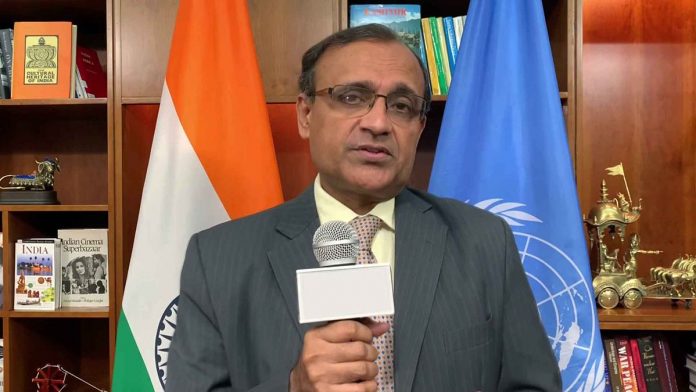NEW DELHI, Jan 8: India will chair the crucial Taliban and Libya sanctions committees and the Counter-Terrorism Committee of the UN Security Council during its tenure as non-permanent member of the powerful 15-nation UN body.
India began its two-year tenure as a non-permanent member of the UN Security Council on Friday along with Norway, Kenya, Ireland and Mexico. They join the five other non-permanent members Estonia, Niger, Saint Vincent and the Grenadines, Tunisia and Vietnam and the five permanent members China, France, Russia, UK and the US in the Council. It is the eighth time that India has become a non-permanent member of the UNSC. The UNSC establishes subsidiary bodies on specific issues, including on the sanctions regimes.
“I’m happy to announce that India has been asked to chair three important committees of the Security Council, which include the Taliban Sanctions Committee, Counter-Terrorism Committee (CTC) and the Libyan Sanctions Committee,” India’s Permanent Representative to the UN Ambassador T.S Tirumurti said in a video message on Thursday.
Prime Minister Narendra Modi had said earlier that as a Council member India would not hesitate to raise its voice against the enemies of humanity, including terrorism and would always speak in support of peace, security and prosperity.
Tirumurti said the Taliban Sanctions Committee, also known as the 1988 Sanctions Committee, had always been a “high priority” for India, keeping in mind the country’s strong interest and commitment to peace, security, development and progress of Afghanistan.
“Our chairing this committee at this juncture will help keep the focus on the presence of terrorists and their sponsors threatening the peace process in Afghanistan. It has been our view that peace process and violence cannot go hand in hand,” he said.
Tirumurti will chair the CTC in 2022, the year in which India will commemorate the 75th anniversary of its independence.
Former Indian Ambassador to the UN, Hardeep Singh Puri, had chaired the CTC for the term 2011-12 when India was last in the UNSC as the non-permanent member.
The CTC, established in the wake of the 9/11 terror attack in the US, works to bolster the ability of UN member states to prevent terrorist acts both within their borders and across regions. It is assisted by the Counter-Terrorism Committee Executive Directorate (CTED), which carries out the policy decisions of the body, conducts expert assessments of each member state and facilitates counter-terrorism technical assistance to countries.
The three committees are highly significant subsidiary bodies of the UNSC and India chairing them is a ringing endorsement of the country’s leadership to steer the panels. India is a leading voice at the UN in the fight against the global scourge of terrorism, particularly the threat posed in the region by cross-border terrorism emanating from Pakistan.
(Manas Dasgupta)

